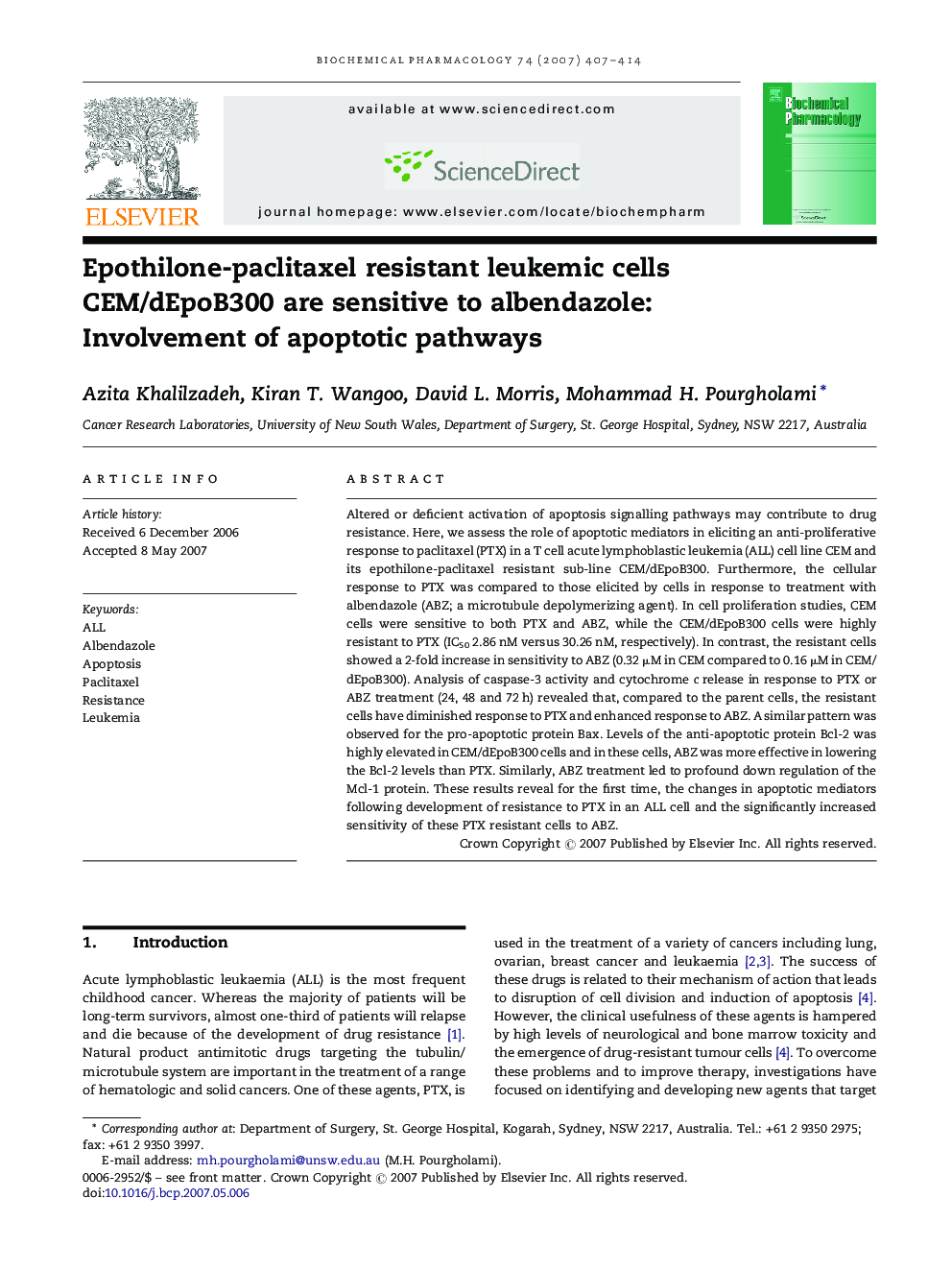| Article ID | Journal | Published Year | Pages | File Type |
|---|---|---|---|---|
| 5824321 | Biochemical Pharmacology | 2007 | 8 Pages |
Altered or deficient activation of apoptosis signalling pathways may contribute to drug resistance. Here, we assess the role of apoptotic mediators in eliciting an anti-proliferative response to paclitaxel (PTX) in a T cell acute lymphoblastic leukemia (ALL) cell line CEM and its epothilone-paclitaxel resistant sub-line CEM/dEpoB300. Furthermore, the cellular response to PTX was compared to those elicited by cells in response to treatment with albendazole (ABZ; a microtubule depolymerizing agent). In cell proliferation studies, CEM cells were sensitive to both PTX and ABZ, while the CEM/dEpoB300 cells were highly resistant to PTX (IC50 2.86 nM versus 30.26 nM, respectively). In contrast, the resistant cells showed a 2-fold increase in sensitivity to ABZ (0.32 μM in CEM compared to 0.16 μM in CEM/dEpoB300). Analysis of caspase-3 activity and cytochrome c release in response to PTX or ABZ treatment (24, 48 and 72 h) revealed that, compared to the parent cells, the resistant cells have diminished response to PTX and enhanced response to ABZ. A similar pattern was observed for the pro-apoptotic protein Bax. Levels of the anti-apoptotic protein Bcl-2 was highly elevated in CEM/dEpoB300 cells and in these cells, ABZ was more effective in lowering the Bcl-2 levels than PTX. Similarly, ABZ treatment led to profound down regulation of the Mcl-1 protein. These results reveal for the first time, the changes in apoptotic mediators following development of resistance to PTX in an ALL cell and the significantly increased sensitivity of these PTX resistant cells to ABZ.
